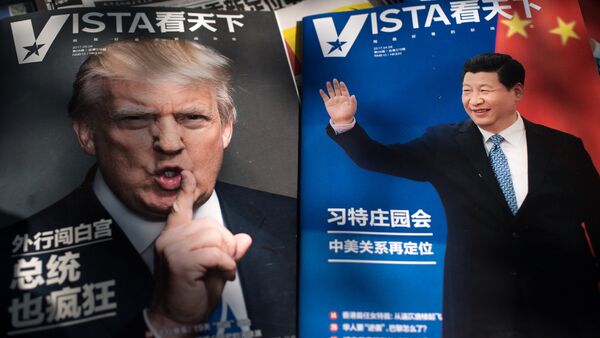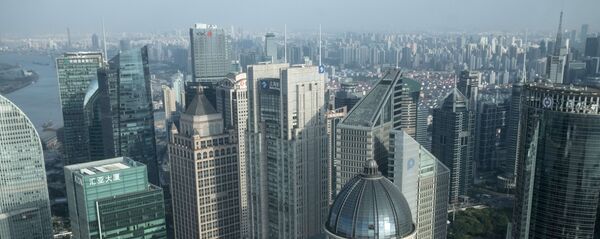Speaking at a press conference in Geneva, World Trade Organization (WTO) Director General Roberto Azevedo specifically focused on the ongoing trade war between the US and China, which he warned may finally ride roughshod over the world economy.
"The worst-case scenario for the global economy, for the consumer, for everyone on the surface of the Earth, is to have no rules, to have the law of the jungle. […] Investors are going to pull back, the economy is going to lose steam and over time millions of jobs will be lost," he pointed out.
READ MORE: 'Positions Not Similar': G20 Finance Ministers Fail to Defuse Trade War Threat
Warning against "eye-for-an-eye" retaliation, Azevedo explained that "a solution can only be found through high-level discussions and engagement."
The WTO chief also cautioned Washington against pursuing its protectionist policies, which he predicted may leave the US economically vulnerable.
In this context, he urged all those "who believe that trade is a force for good to speak up."
Azevedo's remarks came after Trump's meeting with European Commission President Jean-Claude Juncker in Washington, where the US and EU agreed to work toward "zero tariffs" on industrial goods, apart from cars.
READ MORE: US-China Trade War Causes Airbus to Conceal Clients’ Identity — Reports
On Wednesday, Trump accused China of staging a "vicious" attack on US farmers, referring to new tariffs that Beijing slapped on a number of American farm products, such as soy beans, corn, wheat, cotton, rice, beef, pork, poultry, fish, dairy, nuts and vegetables.
China is targeting our farmers, who they know I love & respect, as a way of getting me to continue allowing them to take advantage of the U.S. They are being vicious in what will be their failed attempt. We were being nice — until now! China made $517 Billion on us last year.
— Donald J. Trump (@realDonaldTrump) 25 июля 2018 г.
At the same time, Trump rejected criticism pertaining to his decision to impose tariffs on US allies, adding that the "end result will be worth it."
"Every time I see a weak politician asking to stop trade talks or the use of tariffs to counter unfair tariffs, I wonder, what can they be thinking? Are we just going to continue and let our farmers and country get ripped off?" he wrote on his Twitter page.
When you have people snipping at your heels during a negotiation, it will only take longer to make a deal, and the deal will never be as good as it could have been with unity. Negotiations are going really well, be cool. The end result will be worth it!
— Donald J. Trump (@realDonaldTrump) 25 июля 2018 г.
READ MORE: US Soybean Business Warns Trump About Risks Posed by Trade War With China
Last week, China signaled its intent to adopt more countermeasures to protect its interests and rights after the US's move to introduce tariffs on steel and aluminum imports.
The trade row between Beijing and Washington escalated in April after the US slapped 25- and 10-percent tariffs on steel and aluminum imports, respectively, from China. The Asian nation has hit back by slapping reciprocal tariffs on a number of US imports.
READ MORE: China Slaps US With 25% Tarriffs on $34Bln Worth of Goods as Trade War Escalates
During his election campaign in 2016, Trump pledged to change his country's trade policies by resorting to protectionism. After his inauguration, he started to deliver on his promises by withdrawing the US from the Trans-Pacific Partnership (TPP), renegotiating the North American Free Trade Agreement (NAFTA) and imposing additional tariffs on its trade partners.



